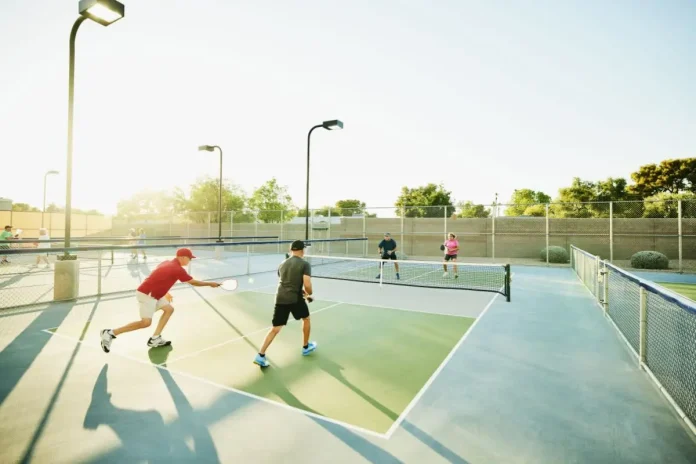Pickleball Group Inclusivity Debate: A local pickleball group faces a problem during its open play. The group meets twice a week at 6 a.m. in a gym. Though open to all, the play is fast and competitive, creating challenges for one less-skilled player.
The pickleball players, aged 35 to over 60, rotate doubles matches on three courts. Though advertised as “open play,” the level is high. One woman, kind and well-meaning, struggles to keep up. She seems to have slower reactions, possibly from a neurological issue.
Many in the group feel frustrated but hesitate to exclude her. While they include her out of kindness, her presence affects the competition. Players quietly wonder why she hasn’t realized the difference in skill.
The Reality of “Open Play”
While the gym calls it open play, the group has become an unofficial club. This means players expect a high, even skill level. A member shared that when they joined, they worked hard to improve. They feel this woman may not be able to improve the same way.
As one player asked, “Would it be kinder to suggest she join a slower, beginner-friendly session rather than watch frustration build?” The group knows they cannot ask her to leave, but many quietly hope she would.
Advice From the Ethicist
A published response from The Ethicist addressed this issue. It said, “Encouraging people with disabilities to participate as widely as possible in social life should be one of the goals of a decent society.” The advice stressed that patience is sometimes needed.
It added, “If she chooses to leave, though, someone else will become the worst player. Will that person then be pressured to leave, too?” The Ethicist noted the group is no longer true open play but a club with unspoken rules.
Possible Solutions
The Ethicist suggested creating a clear, separate high-level session. Another idea is a rotation or ladder system, sorting players by skill. If not, a gentle, honest talk could explain how the group has changed.
The advice urged players to think carefully. “Playing this sort of game with people of different levels is itself a kind of challenge — and amateur sports are about mastering challenges while having a good time.”
What This Could Mean Next
This situation shows how hard it can be to balance fairness and kindness in sports. The group must choose between keeping their fast play or making space for everyone. It may lead to new gym sessions based on skill or honest talks about group needs.
No matter what, this group’s challenge reminds others that sports are about more than winning. They’re about people, respect, and finding ways to play together.
News in Brief: Pickleball Group Inclusivity Debate
A local pickleball group faces a tough situation as one player’s disability affects their competitive games. Though open play is for all, unspoken rules make it high-level. The Ethicist advises patience, honesty, or creating skill-based sessions. The group must balance fairness, kindness, and the joy of playing together.
ALSO READ: Encampment Pickleball Group Expands and Gives Back to Community with School Donation!

